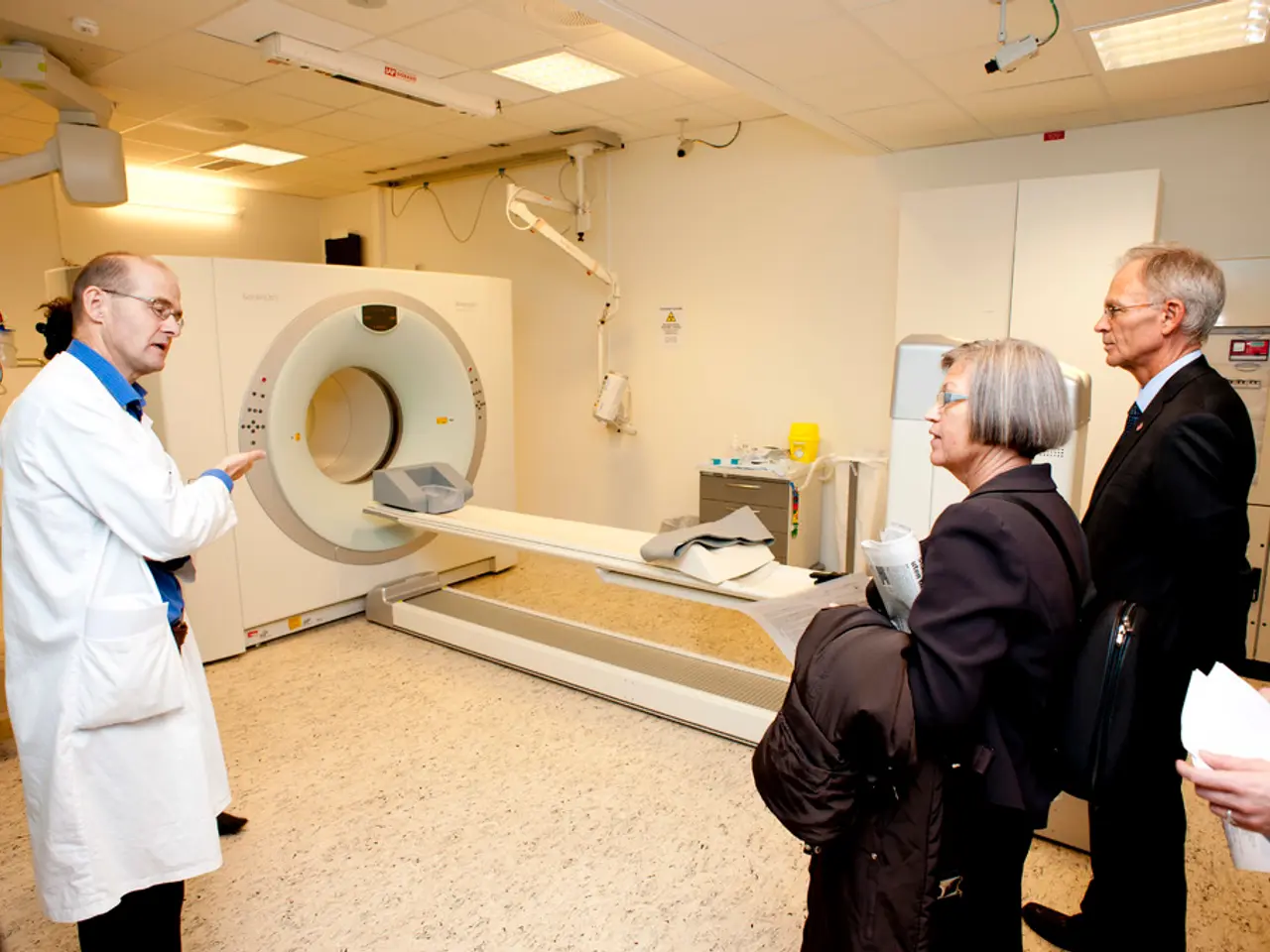Essential medical technology workshops focusing on Value-based Purchasing
The United Kingdom is witnessing an active development in Value Based Procurement (VBP) within the MedTech sector, as part of broader NHS reforms and healthcare innovation efforts. This shift marks a move away from traditional price-driven procurement towards an approach that prioritizes outcomes and value across the clinical pathway, balancing cost control with quality and supply chain resilience[1].
The UK government's Life Sciences Sector Plan 2035 supports this direction by driving NHS reforms, streamlining MedTech procurement pathways, and investing in innovation infrastructure that facilitates value-based healthcare delivery. Initiatives include regulatory acceleration, mechanisms like the “Innovator Passport” to lower procurement barriers for MedTech suppliers, and pilots in Regional Health Innovation Zones to test and scale value-based approaches[2][4].
How MedTech suppliers can get involved in shaping VBP:
- Engage with expert consultancies and training programs offering modular VBP-focused education, such as those helping define organizational value frameworks and procurement strategy aligned with VBP principles[1].
- Participate in pilot projects and health innovation zones established by NHS regions or government to demonstrate clinical and economic benefits of their products in value-focused procurement models[2].
- Collaborate closely with NHS procurement bodies, NICE, MHRA, and other stakeholders during regulatory and reimbursement processes to influence evolving criteria aligning product performance with patient outcome metrics[2][4].
- Build evidence of clinical and economic value through pilot studies and real-world data publishing, which supports the VBP emphasis on outcomes beyond initial purchase price[3].
- Utilize government initiatives targeting MedTech procurement innovation, such as streamlined trial approvals and new procurement pathways within the Life Sciences Sector Plan framework[2][4].
The UK Health Department has called two market engagement sessions on 7 and 13 May, inviting stakeholders to shape a new evaluation methodology[5]. Chris Whitehouse, a political consultant and expert on medical technology policy and regulation, is an advisor to MedTech suppliers[6]. Whitehouse Communications is also an advisor to MedTech suppliers.
It is crucial that the evidence of value required under the new system considers real-world studies, particularly if they have been industry-funded but delivered with NHS or social care partners[3]. The draft new methodology for assessing value is being tested by several local NHS organizations[4]. The new system aims to shift from a price-based system to one focusing on patient experience and outcomes[1].
The MedTech Directorate of the Department of Health and Social Care has called on MedTech developers and suppliers to engage with officials regarding a new value-based approach to procurement[7]. The UK Government is seeking views on changes to key procurement guidelines[8].
Whitehouse is also the chair of the Urology Trade Association[9]. For comments or questions, you can reach out to Chris Whitehouse at [email protected].
[1] NHS England. (2021). Value Based Procurement (VBP) in the NHS. Retrieved from https://www.england.nhs.uk/wp-content/uploads/2021/03/value-based-procurement-vbp-in-the-nhs.pdf [2] Department of Health and Social Care. (2021). Life Sciences Sector Deal. Retrieved from https://www.gov.uk/government/publications/life-sciences-sector-deal [3] Department of Health and Social Care. (2021). Value Based Procurement (VBP) Consultation. Retrieved from https://www.gov.uk/government/consultations/value-based-procurement-vbp-consultation [4] NHS England. (2021). Health Innovation Zones. Retrieved from https://www.england.nhs.uk/ourwork/innovation/health-innovation-zones/ [5] Department of Health and Social Care. (2022). Market Engagement Sessions. Retrieved from https://www.gov.uk/government/news/market-engagement-sessions [6] Whitehouse Communications. (n.d.). About Us. Retrieved from https://www.whitehousecomms.com/about-us/ [7] Department of Health and Social Care. (2021). MedTech Directorate. Retrieved from https://www.gov.uk/government/groups/medtech-directorate [8] Department of Health and Social Care. (2021). Procurement Policy Notice 03/2021. Retrieved from https://www.gov.uk/government/publications/procurement-policy-notice-032021 [9] Urology Trade Association. (n.d.). About Us. Retrieved from https://urologytradeassociation.org/about-us/
- Suppliers in the medical devices industry can invest in education offered by expert consultancies, focusing on Value Based Procurement (VBP) to better align with the UK's healthcare innovation efforts.
- Collaboration with NHS procurement bodies, NICE, MHRA, and other stakeholders is key for MedTech suppliers to influence evolving VBP criteria and product performance with regard to patient outcome metrics.
- Involvement in pilot projects and health innovation zones established by NHS regions offers MedTech suppliers the opportunity to demonstrate their products' clinical and economic benefits within value-focused procurement models.
- To show the value required under the new system, suppliers should conduct pilot studies and publish real-world data, emphasizing outcomes beyond initial purchase price.
- Government initiatives aimed at MedTech procurement innovation, such as streamlined trial approvals and new procurement pathways, should be utilized by suppliers to enhance their chances of success.
- Engaging with officials regarding a new value-based approach to procurement, as called for by the UK Government, can help MedTech developers and suppliers shape the future of healthcare industry standards.
- As the chair of the Urology Trade Association, Chris Whitehouse plays a significant role in advising MedTech suppliers on medical technology policy and regulation matters.
- Stakeholders in the medical devices, health and wellness, lifestyle, fashion and beauty, food and drink, home and garden, business, technology, travel, and sports industries may have a role to play in influencing the development of the new value-based procurement system in the UK.





